What is Gastric Bypass Surgery?
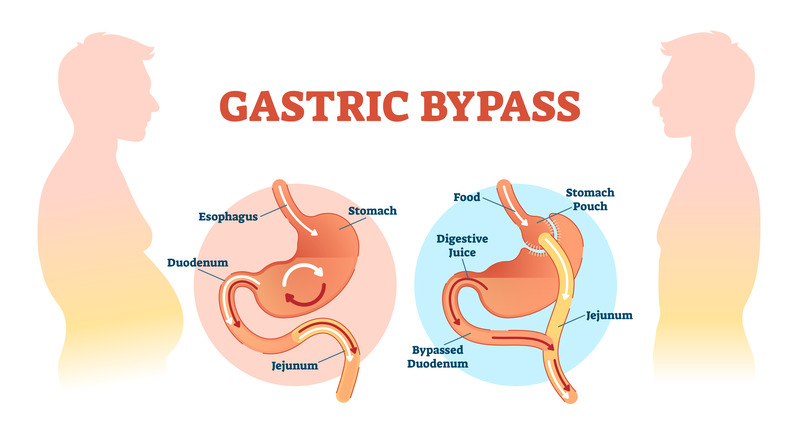
We recommend gastric bypass for patients diagnosed with severe obesity. We advise the surgery for anyone who has attempted to lose weight without long-term success. To be cleared for bypass gastric surgery, you will need a body mass index (BMI) of 40 and above. Your doctor may advise you to undergo gastric bypass if you have a BMI of 35 with one or more weight-related illnesses, such as high blood pressure, heart disease, and type 2 diabetes.

Roux-en-Y gastric bypass (RYGB) is a type of bariatric (weight loss) surgery. Considered the gold standard of bariatric procedures, the gastric bypass helps you lose weight in two ways.
First, the bariatric surgeon will section off the upper portion of your stomach using staples. This creates a small pouch the size of an egg, which reduces the amount of food you can eat.
The bypass surgeon then attaches the new pouch directly to the small intestine, forming a “Y” shape and creating the “Roux limb.”
How Does Gastric Bypass Help You Lose Weight?
The new pouch restricts your eating while the rerouting of your digestive system reduces the amount of fat and calories you absorb from the foods you eat. Incidentally, the surgery can also cut down on the amounts of vitamins and minerals you absorb from food.
The surgery employs the use of small incisions in the abdomen, which acts as entry points for the laparoscopic camera and other surgical tools. The surgery can help you lose up to 100 pounds of excess weight. Bariatric bypass surgery has also been shown to reverse type 2 diabetes and can help to lower the risks associated with high blood pressure, certain heart conditions, and sleep apnea.
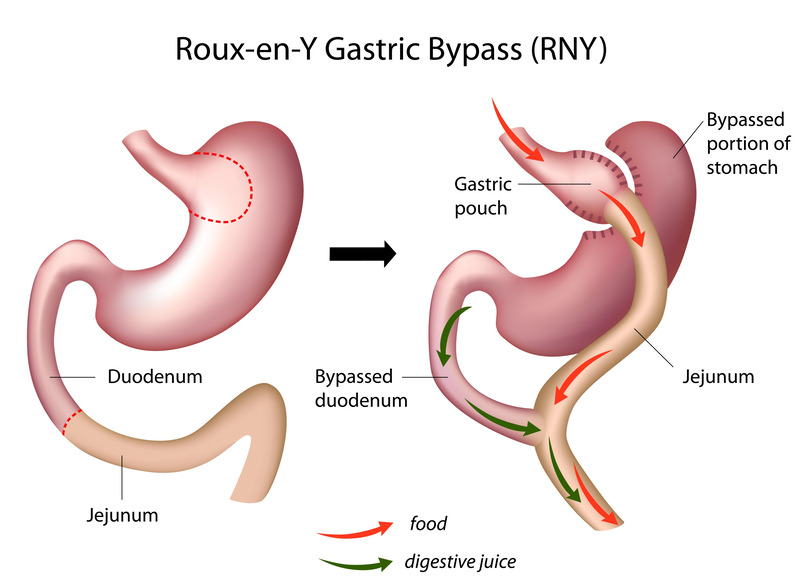
Gastric Bypass Surgery Cost
As far as bariatric procedures are concerned, gastric bypass is among the most expensive. The average cost of gastric bypass ranges between $20,000 and $25,000. The fees you pay may vary depending on the specifics that the bypass surgeon will discuss with you during your initial consultation. When you weigh the benefits of weight loss bypass surgery with the cost, however, you will see that the surgery is well worth the money. Benefits include significant weight loss, more energy, and a new lease on life.
Success Stories of Gastric Bypass Patients


Is Gastric Bypass Covered by Insurance?
Insurance companies have become more privy to the idea that bariatric surgery saves lives. By reducing weight and treating type 2 diabetes, surgeries like gastric bypass are now covered on many health insurance policies. Your employer may offer bariatric surgery as one of your covered benefits. If bariatrics is not part of your policy, you can lobby your company’s HR department to persuade the heads of the department to offer weight loss bypass surgery coverage. In rare cases, all you have to do is ask to be covered, as some company insurance policies cover bariatric surgery on a case-by-case basis.
For the self-employed who are responsible for securing their own health insurance coverage, check your policy. More insurance companies than ever before are covering surgeries like stomach bypass surgery.
For the uninsured, bariatric surgery financing is available. Companies like CareCredit and Prosper Healthcare Lending give you a credit card that you use at the time of payment. Other ideas for paying for surgery out of pocket include personal loans and loans from friends and family.
Post-Op of Gastric Bypass – What to Expect After Bariatric Bypass Surgery?
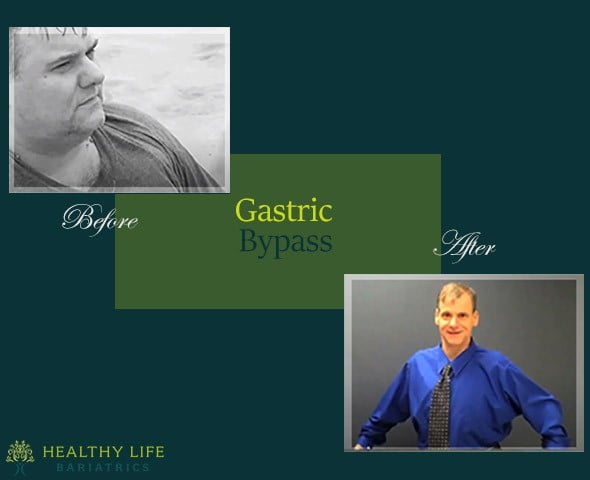
Gastric bypass is a major surgery. Like any major surgery, you will spend some time in recovery. Most people are required to stay in the hospital for two or three days. Recovery at home can last a week to two weeks or more. You should be back to your regular routine within three to five weeks.
During your recovery time, the surgeon will ask you to take it easy and get plenty of rest. Drink your fluids and follow your bariatric surgeon’s recommendations, which include proper care of the surgical site. As far as bypass surgery weight loss is concerned, you can expect to lose a lot of weight. If a weight-related medical condition is present, such as type 2 diabetes or high blood pressure, those conditions may diminish or disappear completely. You will have more energy and your quality of life will improve as well.
Gastric Bypass Weight Loss Timeline
1- Before Gastric Bypass Surgery
Before the surgeon gives you the green light for gastric bypass, he/she will need to evaluate you. Some insurance policies want your general practitioner to recommend weight loss surgery before you progress to a consultation with a weight loss surgeon. Check with your insurance provider to ensure you follow the necessary protocols. The bariatric surgeon and surgical team will meet with you to determine your candidacy for gastric bypass. You may also be required to meet with a dietician and psychologist. The surgeon will perform a series of pre-operative blood tests and X-rays after the initial evaluation and about one week prior to surgery.
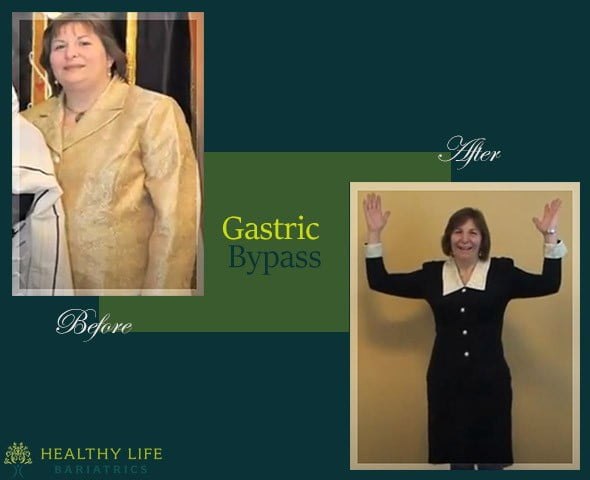
Quit Smoking
No one likes to be told what to do. However, if you are a smoker, and you want the best results from the gastric sleeve and to protect your health, you MUST quit smoking. Plan to quit smoking at least one month before surgery. Preferably, you’ll toss the habit two months before surgery to significantly decrease your risk of pneumonia and other lung problems following surgery. Call your general practitioner if you need a smoking cessation aid, such as patches or gum. It may help to know that smoking is the number one cause of preventable death in the United States.
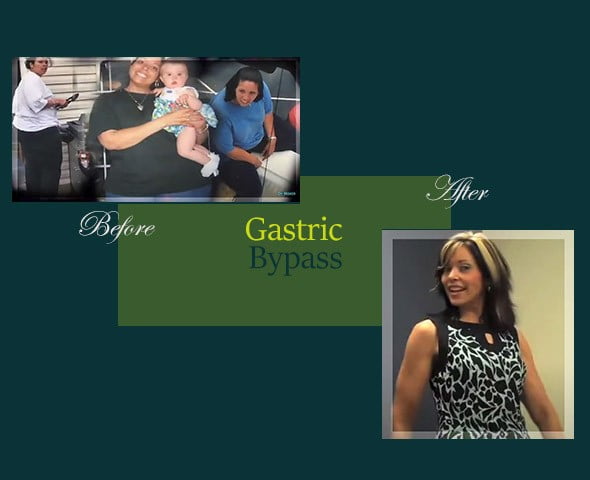
2- Gastric Bypass Surgery Day
On the day of bariatric bypass surgery, you will be admitted into the operating room by a surgical nurse. Patients with heart problems will require special monitoring and may be checked into the surgical center the day before surgery, though this is a rarity.
After you have been prepped for weight loss bypass surgery, you will be asked a series of questions by the nurse, anesthesiologist, and bariatric surgeon. The anesthesiologist will begin the numbing process by inserting an IV. After a short time, you will fall asleep, and surgery will begin.
3- Post-Operative Care
You will wake up from surgery in the recovery room. For a short period, usually an hour or two, nurses and your physician will monitor your vital signs, such as breathing and heart rhythm. If your health remains stabilized and your blood oxygen levels stay healthy, they will move you to a regular hospital room for a short stay.
Tubes and Drains
While you are asleep during surgery, the surgeon will place two tubes into your body. One tube is responsible for helping you breathe while the surgeon performs the procedure. The surgeon will also insert a catheter into your bladder to collect urine.
When you are moved to the hospital room, you may be required to keep the catheter in for a day or so after surgery. You may also experience a sore throat from the breathing tube that they use during the gastric bypass surgery. Any discomfort you experience will dissipate within a day or two.
In some cases, a nasogastric tube will be placed through the nose and into the stomach. This tube will also remain in place after surgery until it’s determined that your stomach is healing well. This nasally inserted tube is responsible for removing secretions from the upper stomach. The tube also prevents distention, which can occur when the egg-shaped pouch becomes overfilled.
In rare cases, your bariatric surgeon may choose to place a tube through your skin that extends into the bottom part of your stomach. Referred to as a Gastrostomy tube or G-tube, this tube can help you from becoming too bloated. The G-tube is very rarely used and typically only reserved for those who have had stomach reduction surgery in the past and who now require revision bariatric surgery.
Real-Life Experiences of Gastric Bypass Patients


Pain Management Following Roux-en-Y Surgery
Your bariatric surgeon can recommend over-the-counter remedies to combat post-surgical pain and discomfort. You may also receive a prescription for medication. Follow your surgeon’s recommendations to remain healthy and ensure fast healing from your gastric bypass procedure.
Are You a Good Candidate for Gastric Bypass Surgery?
We recommend gastric bypass for patients diagnosed with severe obesity. We advise the surgery for anyone who has attempted to lose weight without long-term success. To be cleared for bypass gastric surgery, you will need a body mass index (BMI) of 40 and above. Your doctor may advise you to undergo gastric bypass if you have a BMI of 35 with one or more weight-related illnesses, such as high blood pressure, heart disease, and type 2 diabetes.
Tens of thousands of patients have achieved life-changing results using this bariatric technique. It’s no wonder why gastric bypass is one of the most common procedures we offer at Healthy Life Bariatrics in Los Angeles, California.
Are There Any Risks to Gastric Bypass?
All surgeries have some levels of inherent risk. Risks of gastric bypass surgery include constipation, gallstones, wound infections, and dumping syndrome. Dumping syndrome is when high-sugary meals, sodas, and fruit juice push through the stomach, causing vomiting, nausea, and weakness.
You can minimize your risks by choosing the best and most qualified weight loss surgeon.
What’s the First Step to Getting a Gastric Bypass?
If the diagnosis shows that you are obese or suspect you have a BMI over 40 (or 35 with one or more weight-related conditions), you may qualify for bariatric gastric bypass surgery. Call Healthy Life Bariatrics, the home of world-renowned bariatric Dr. Babak Moeinolmolki.

Frequently Asked Questions (FAQ)
Schedule a Consultation with Weight Loss Surgeon Dr. Moein

Bariatric surgeon Dr. Moeinolmolki specializes in minimally-invasive laparoscopic surgery, which uses tiny, one-inch incisions and laparoscopic tools, including a camera. Dr. Moeinolmolki performs the surgery while watching on a monitor, which eliminates the need for “open” surgery. The risks to your health get lower with laparoscopic surgery. Gastric bypass has proved to help patients lose weight, up to 100 pounds or more.
Schedule a consultation with bariatric surgeon Dr. Moein in Los Angeles, CA, and ask about the gastric bypass by calling (310) 861-4093.

